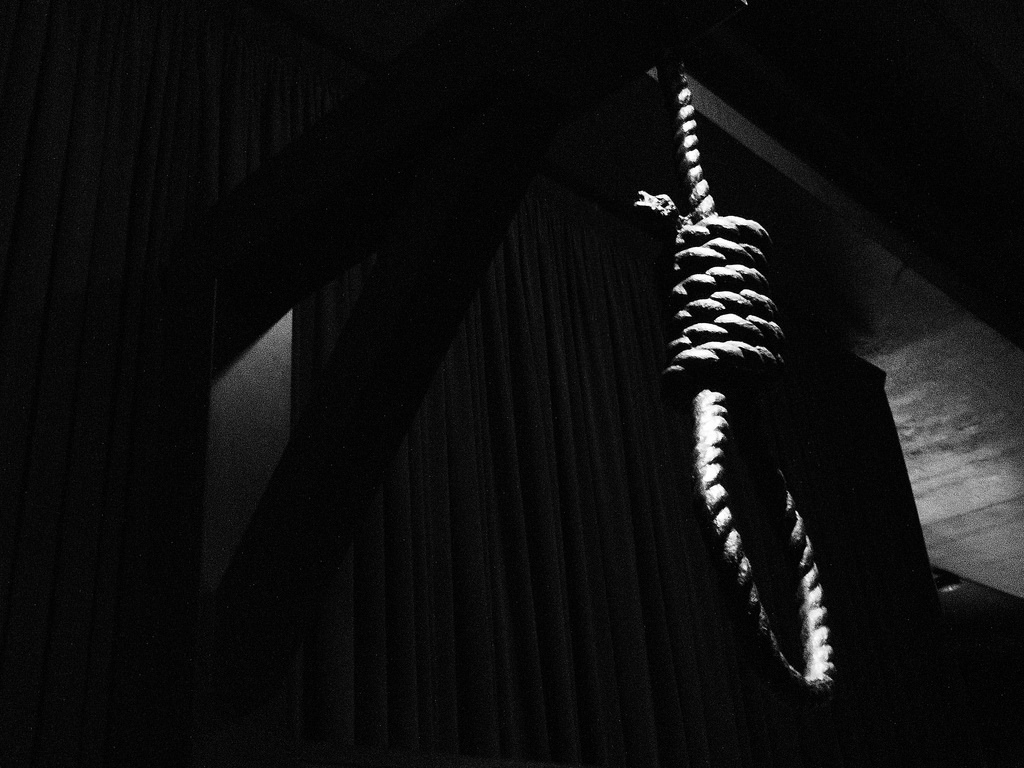Do you believe in the notion of “pure evil”? I am not asking because yesterday was Israel’s Holocaust Remembrance day, but it is especially interesting to raise the question today, as those are the kinds of words often used when describing Nazis in general, and Hitler in particular. I am asking because of a new Kansas State University study indicating that how you answer the question about evil suggests how you are likely to feel about sentencing criminals to death or to life in prison without the possibility of parole.
People who believe in pure evil, demons and/or “the demonic” are more likely to support the death penalty and life without parole, and especially more likely to support those punishments being used, when they identify the accused as such. That doesn’t strike me as particularly surprising. It does however suggest something hopeful, and also something interesting, regarding how alike we are as human beings, regardless of how we feel about evil, or what we think about the death penalty.
The results of this study indicate that most people actually believe in preserving human life and also in the possibility of redemption, and that is the case, regardless of the theologies they hold, or the policies they support.
Most people don’t support the killing of other human beings, or even of sentencing them to irrevocable punishments. That is why there is such a high correlation between the belief in pure evil and support for the death penalty and life without parole. While individuals may support such forms of justice, they tend to do so only when they imagine implanting them with those whom they no longer consider to be fully human, but instead consider them in the categories of pure evil and the demonic. This is the hopeful part. And it is also the suggestive part.
Rather than endlessly debating the morality of the death penalty – as we have done for decades, with neither side having much impact on the thinking of the other – we could start discussing whom it is we think is getting killed. We could actually shift the conversation from whether or not a person who stands to be executed deserves it, to a conversation about whether or not they are a person.
Doing this would allow people space to make an authentic, and I would argue morally defensible, claim that a given criminal deserves to die, or be forever incarcerated, while leaving open that even though they may deserve it based on their crimes, the fact of their humanity might keep us from implementing those forms of justice. And even those who affirm the existence of pure evil and of the demonic, and those who support the death penalty, re slower to label particular individuals as such. That is why even many of those who support the death penalty, are uncomfortable with forms of execution which cause pain. Their discomfort is actually an affirmation of at least some other element of the victim’s humanity.

Listed for many years in Newsweek as one of America’s “50 Most Influential Rabbis” and recognized as one of our nation’s leading “Preachers and Teachers,” by Beliefnet.com, Rabbi Brad Hirschfield serves as the President of Clal–The National Jewish Center for Learning and Leadership, a training institute, think tank, and resource center nurturing religious and intellectual pluralism within the Jewish community, and the wider world, preparing people to meet the biggest challenges we face in our increasingly polarized world.
An ordained Orthodox rabbi who studied for his PhD and taught at The Jewish Theological Seminary, he has also taught the University of Pennsylvania, where he directs an ongoing seminar, and American Jewish University. Rabbi Brad regularly teaches and consults for the US Army and United States Department of Defense, religious organizations — Jewish and Christian — including United Seminary (Methodist), Yeshivat Chovevei Torah (Modern Orthodox) Luther Seminary (Lutheran), and The Jewish Theological Seminary (Conservative) — civic organizations including No Labels, Odyssey Impact, and The Aspen Institute, numerous Jewish Federations, and a variety of communal and family foundations.
Hirschfield is the author and editor of numerous books, including You Don’t Have To Be Wrong For Me To Be Right: Finding Faith Without Fanaticism, writes a column for Religion News Service, and appears regularly on TV and radio in outlets ranging from The Washington Post to Fox News Channel. He is also the founder of the Stand and See Fellowship, which brings hundreds of Christian religious leaders to Israel, preparing them to address the increasing polarization around Middle East issues — and really all currently polarizing issues at home and abroad — with six words, “It’s more complicated than we know.”

